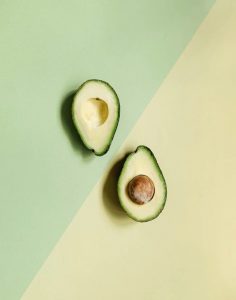Best Foods for Anxiety

Anxiety is debilitating. It is a horrible feeling and is becoming more and more common in today’s highly stressed society. The good news is that anxiety is controllable!
Overcoming anxiety without medications involves making lifestyle changes and the foods you eat (and do not eat!) can play a huge part. The foods that you choose can drastically cut down on the anxiety you experience and help to improve your mood. While simply eating good food alone may not work at reducing anxiety for everyone, it can certainly help be a part of the solution for some people.
Foods to Include:
Avocado – We need B vitamins for healthy nerves and brain cells, and feelings of anxiety may be rooted in a B vitamin deficiency. Avocados are rich in stress-relieving B vitamins.
Asparagus – Rich in sulfur and contains the B vitamin folic acid. Levels of low folic acid are linked to neurotransmitter impairment, which can lead to anxiety. Folic acid is also found in dark leafy greens, broccoli, citrus fruits, beans, peas and lentils.
Blueberries – Just a handful provides a good hit of antioxidants and vitamin C, making them great little stress-busters. When we’re stressed, our bodies need vitamin C and antioxidants to help repair and protect cells.
Almonds – Get some stress-relief munching on almonds, which are rich in vitamins B2 and E. Both of these nutrients help boost the immune system during times of stress. They also contain zinc, a key nutrient for maintaining a balanced mood – and have both iron and healthy fats. Healthy fats are an important part of a balanced diet, and low iron levels have been known to cause brain fatigue, which can contribute to both anxiety and a lack of energy.
Salmon – A diet rich in omega-3 fatty acids helps keep cortisol and adrenaline from spiking when you’re feeling tense. Salmon is one of the very best sources of omega-3s. Other good choices: anchovies, sardines, and mussels.
Spinach – Spinach is packed with magnesium, the mineral that helps regulate cortisol levels and promote feelings of wellbeing. A mere cup of spinach fills 40 percent of your daily quota, so add some in with your morning eggs, swap for lettuce in your sandwich, have a salad, steam it as a side dish, or drop a handful of leaves into your soup.
Dark Chocolate – yes you read this correctly! Chocolate reduces cortistol – the stress hormone that causes some of the symptoms of anxiety. Dark chocolate also stimulates the production of endorphins, chemicals in the brain that bring on feelings of pleasure so therefore makes you feel happier!
Opt for pure dark chocolate (at least 70%) that does not contain added sugars and milk.
Turkey – Turkey contains the amino acid tryptophan which signals the brain to release the feel-good chemical serotonin, which promotes calmness and even tiredness. Have some turkey before bed to help you sleep!
Oatmeal – helps get the calm-inducing hormone serotonin flowing. Go with thick-cut, old fashioned oats that require cooking instead of instant oatmeal. Why? Coarse oats are higher in fiber and so they take longer to digest (meaning their calming effect actually lasts longer).
Brown rice and other whole grains- Those that can tolerate gluten may benefit from whole grain foods such as brown rice, whole grain pastas and breads. True whole grains (some “whole grain foods” still contain processed ingredients) have several benefits for those with anxiety:
- Whole grain is rich in magnesium, and magnesium deficiency may lead to anxiety.
- Whole grain contains tryptophan, which becomes serotonin – a calming neurotransmitter.
- Whole grains create healthy energy while reducing hunger – both important for anxiety.
Seaweed – Seaweed has many of the same benefits as whole grains. Not only is it rich in nutrients, it also appears to have a high magnesium content, and kelp and other seaweed appear to be very high in tryptophan content. Seaweed is a good alternative to whole grains for those that are gluten sensitive.
Maca Root – not always at the top of your shopping list and many of you probably haven’t even heard of this superfood! It’s believed that this root has more phytonutrients than nearly every type of fruit and vegetable, including magnesium and iron – two important nutrients for controlling anxiety. It also helps increase energy and plays a big part in balancing hormones. It can be found in powder form in most supermarkets or health foods store.
L-theanine (or green tea) – They say Japanese Buddhist monks could meditate for hours, both alert and relaxed. One reason may have been an amino acid in their green tea called L-theanine, says Mark Blumenthal, of American Botanical Council.
Research shows that L-theanine helps curb a rising heart rate and blood pressure, and a few small human studies have found that it reduces anxiety.
All of the above foods are beneficial for dealing with your anxiety. They provide vitamins and nutrients that are known to calm the mind and body while also increasing energy and stabilizing your mood. Combine those foods with a balanced diet that is free of fried foods and harmful ingredients and you should see a marked difference in your anxiety levels.
For more information or a consultation with Kasey (Nutritionist), please contact us to arrange an appointment.
